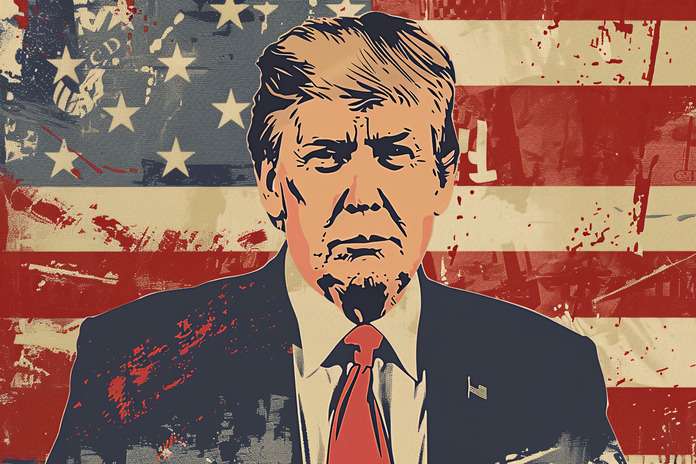Former President Donald Trump has transformed from a crypto skeptic to one of the industry’s most high-profile supporters. His latest venture, World Liberty Financial, highlights how Trump crypto ventures are fueling both massive profits for his family and fierce political controversy.
A $5 Billion Windfall From World Liberty Financial
In July, Trump signed the GENIUS Act, the country’s first major standalone cryptocurrency bill, marking a dramatic shift in U.S. crypto policy. Just days later, Trump’s family reaped an estimated $5 billion on paper from the public debut of World Liberty Financial.
The new venture, co-founded by Trump and his sons, launched its own token, $WLFI, which opened at 32 cents before retreating to around 22 cents. Even though the Trumps are barred from selling their holdings immediately, the on-paper valuation underscores how Trump crypto ventures have quickly become a lucrative family enterprise.
This move builds on earlier ventures, including Trump-branded NFTs and a meme coin. Reports indicate the former president earned over $57 million from crypto-related sales last year alone.
From Crypto Skeptic to Crypto Advocate
Trump once dismissed cryptocurrency as a “scam.” Yet, his stance changed significantly during his re-election campaign, where he courted deep-pocketed crypto investors by promising to make the U.S. the “crypto capital of the world.”
Since returning to the White House, Trump has acted swiftly to deliver on that promise. He appointed Paul Atkins, a known crypto supporter, to lead the Securities and Exchange Commission (SEC). This marks a sharp contrast to the Biden administration, which pursued aggressive enforcement actions against crypto firms for fraud, securities violations, and money laundering.
Trump’s policy shift has coincided neatly with his family’s expanding crypto ventures, raising alarms about blurred lines between personal business and presidential duties.
Ethical and Legal Concerns
Critics argue that Trump crypto ventures present glaring conflicts of interest. By signing legislation favorable to crypto while simultaneously profiting from family-run projects, Trump is accused of intertwining public policy with private gain.
Senator Elizabeth Warren was blunt in her criticism, calling it “corruption, plain and simple.” Meanwhile, legal experts like Ross Delston, a former FDIC regulator, warn that allowing anyone—including foreign actors or individuals with criminal records—to invest in Trump’s token could create troubling national security risks.
Despite such concerns, the White House has defended Trump’s actions. Press Secretary Karoline Leavitt stated that neither the president nor his family has engaged—or will ever engage—in conflicts of interest. Still, watchdog groups argue that current regulations provide few guardrails to address this unprecedented overlap of political power and private crypto ventures.
What’s Next for Trump Crypto Ventures?
Although the World Liberty Financial token has faced a shaky market debut, the bigger picture suggests Trump crypto ventures are only beginning to scale. With regulatory agencies under crypto-friendly leadership and the GENIUS Act setting a favorable legal framework, Trump’s family enterprises could thrive in the coming years.
However, questions remain. Will relaxed oversight foster innovation, or will it open the door to fraud and abuse? Will Trump’s political and business interests become indistinguishable? For investors and voters alike, the answers could shape both the crypto industry’s future and the integrity of U.S. governance.
Bottom Line
Trump’s pivot from crypto critic to crypto mogul has been swift and profitable. The $5 billion on-paper gain from World Liberty Financial shows just how lucrative Trump crypto ventures have become. But as profits mount, so do concerns about conflicts of interest and the potential erosion of regulatory safeguards.
For now, the success of Trump’s crypto projects reflects a broader reality: cryptocurrency is no longer just a financial asset—it’s also a political tool, with the power to enrich, influence, and disrupt.
Featured Image: Freepik © hoaixuanboss




